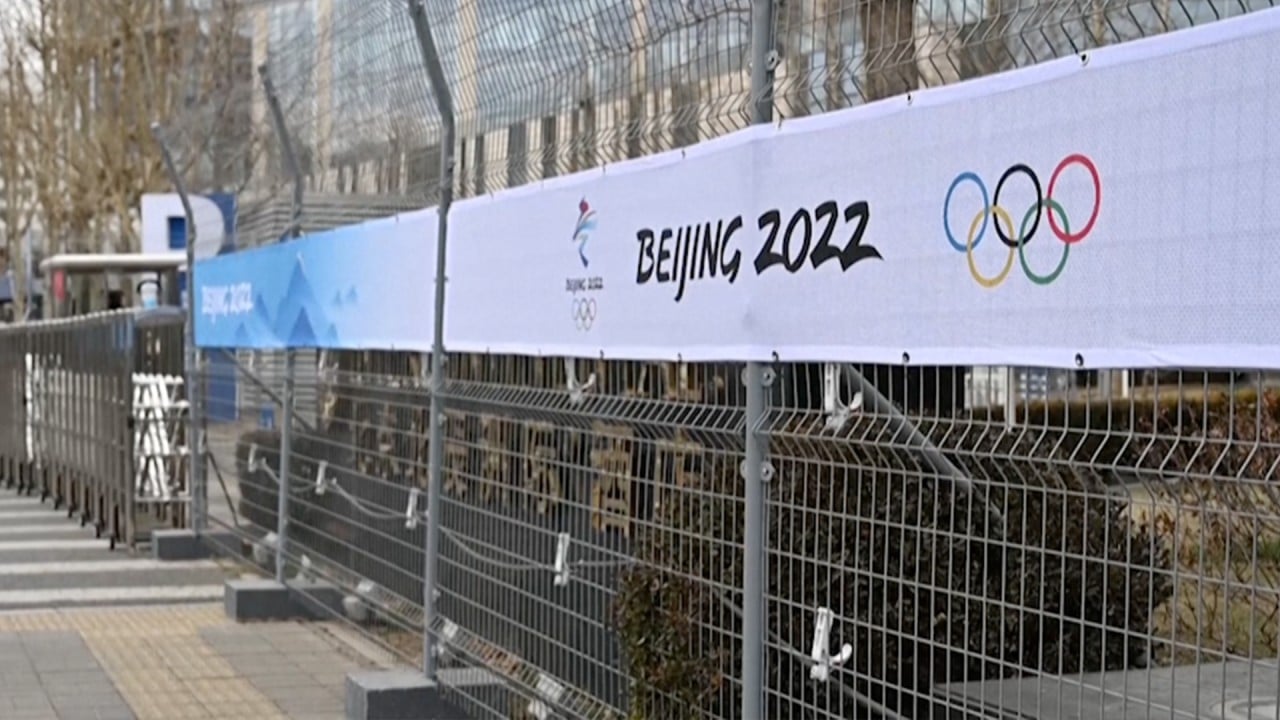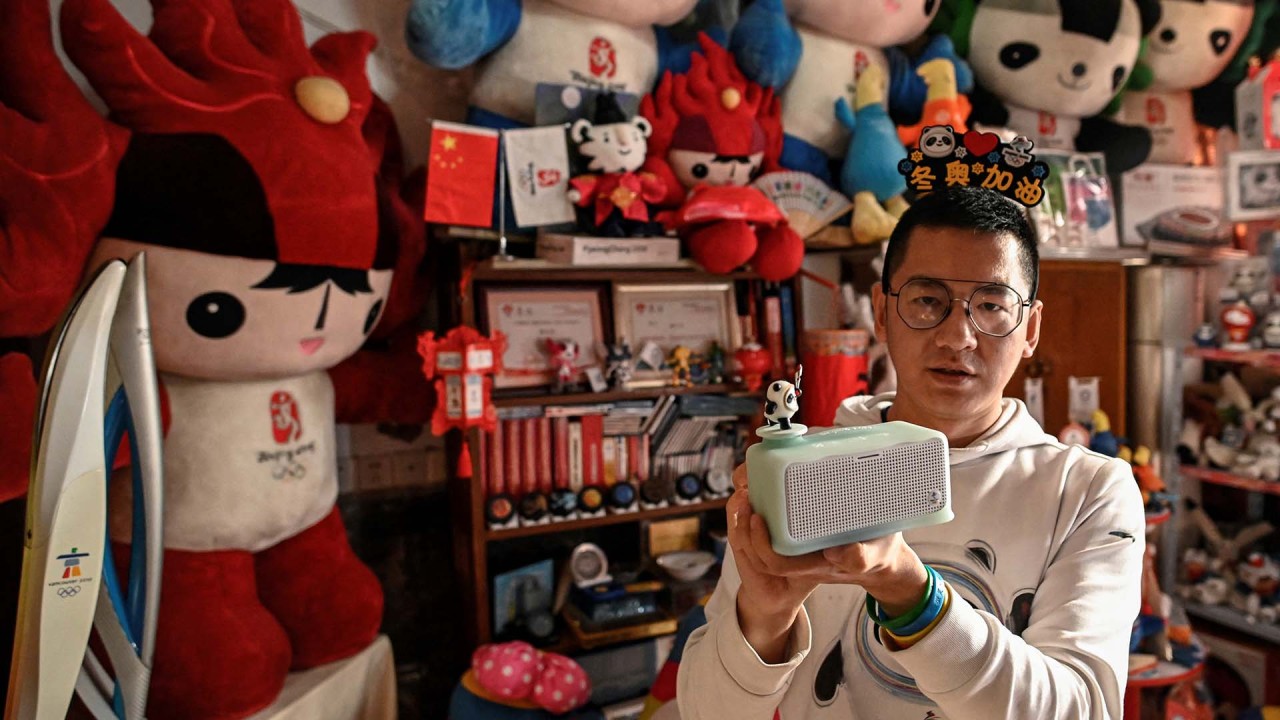
China’s champion athletes help schools promote fitness, not endless study
- Former athletes are being recruited to help teach sports classes as schools reduce the emphasis on academic work
- Campaign to prioritise children’s health is aimed at capitalising on Beijing Winter Olympics, amid concerns over obesity, nearsightedness and stress
Sui was four years old when she was picked out by China’s state sports machine and began training as an elite athlete. She became world champion on the balance beam in 2011 and won silver at the London Olympics the following year.
But the pupils taking instruction from her in the bright, airy room in a Shanghai university harboured no such ambitions – Sui’s class was on basic physical fitness.
“People didn’t like sports before. They were under pressure to study and didn’t have time for exercise. But now everyone values sports,” Sui said after running her students through more stretches and balletic exercises.
The new state emphasis on exercise – school work has been reduced, and targets such as a two-hour minimum of daily physical activity have been introduced – has forced a scramble to find qualified teachers.
That has given Sui and other ex-athletes new career options in a previously limited system.
“It’s not like before when everyone thought professional athletes could only teach other professionals after retirement,” Sui said.
She sees her mission as not about creating elite or even middling athletes, but to break down Chinese perceptions that sport is only for top-level competitors and a waste of time for everyone else.
Concern has risen over the education system, geared towards rote learning, pressure-packed exams and additional after-school cramming at private tutoring businesses as anxious parents push their children to keep up.
The schooling situation has been blamed for contributing to youth obesity, nearsightedness and rising despair over a society many young people say they increasingly view as a stressful dead-end rat race.
Jiang Yujing was a member of China’s winning squad in the 2010 World Junior Badminton Championships, and now teaches the sport in Shanghai at a combined primary-middle school.
She said parents were realising that “study is not the only way” to find success.
“It’s not the same as before. Parents nowadays wouldn’t insist on tutoring at home on weekends. They hope more to follow their child’s natural instincts, and relieve their stress through sports,” she said.
One of her pupils, fourth-grader Song Xuanchun, said he and his classmates were enjoying the change in focus.
“Most of my class is in better shape. Previously a lot of my classmates would often get nosebleeds or become ill, but not any more,” he said.
Mother-of-two Zhu Jing used to insist her own fourth-grader studied incessantly during off-hours.
But she said she had begun to realise that “if they study every day … their interest in or enthusiasm for learning will decrease because they will think that no matter how hard they work, they will have endless homework anyway”.
Zhu said the reduced study load this school year meant more time for pursuits such as badminton or cycling, often as a family – as well as “more exposure to natural light”.
But some parents have expressed concern on Chinese blogs, speculating that the sports drive might eventually fizzle out, leaving their children behind academically.
Posts suggest that many parents are still secretly pushing their kids to study just as much as before.
For now, the fitness drive shows no sign of slowing. Some Chinese provinces are even tweaking entrance-test requirements for high schools and universities to increase the weighting given to sporting achievements.
Zhang Meng, vice-principal of a combined primary and middle school in Shanghai, said his institution already had nearly 20 physical education teachers and planned to add six more.
The school recently installed new lighting on its outdoor PE facilities to allow students to exercise well into the evening, responding to popular demand.
“From my point of view, a child who likes sports is relatively healthy physically and mentally,” Zhang said.

.png?itok=arIb17P0)

